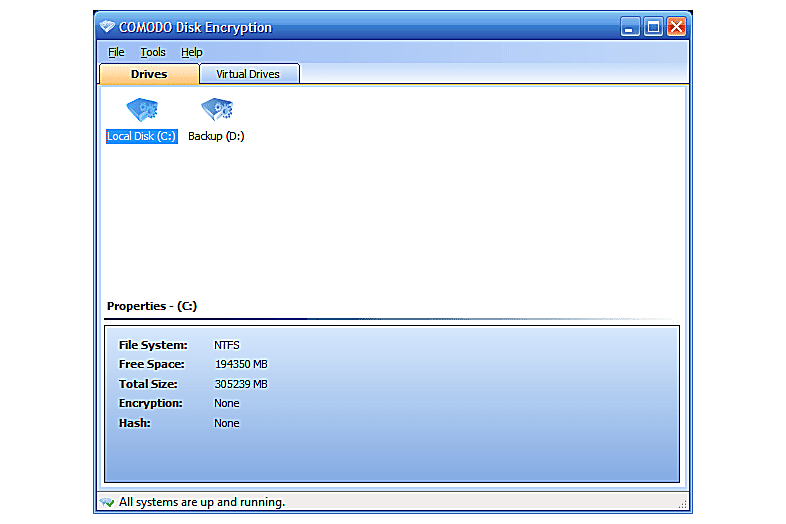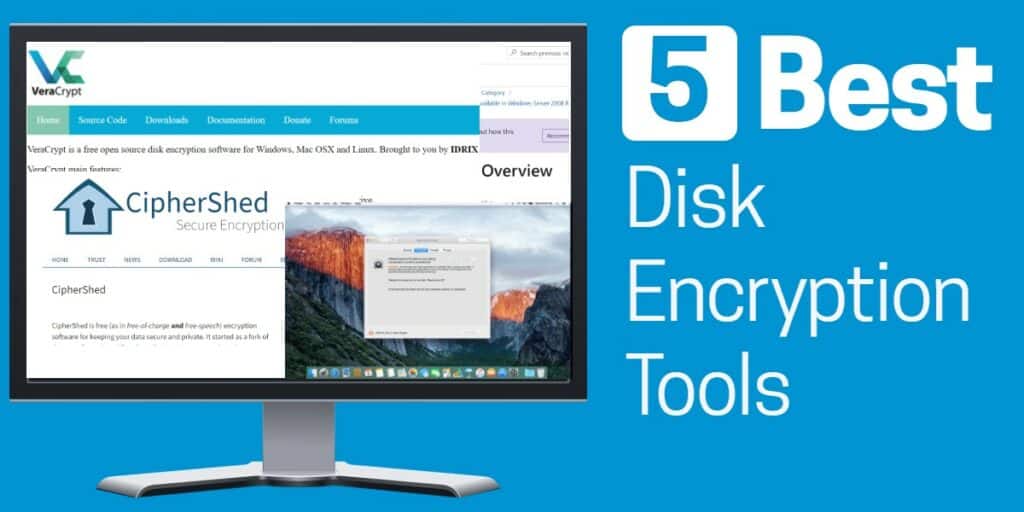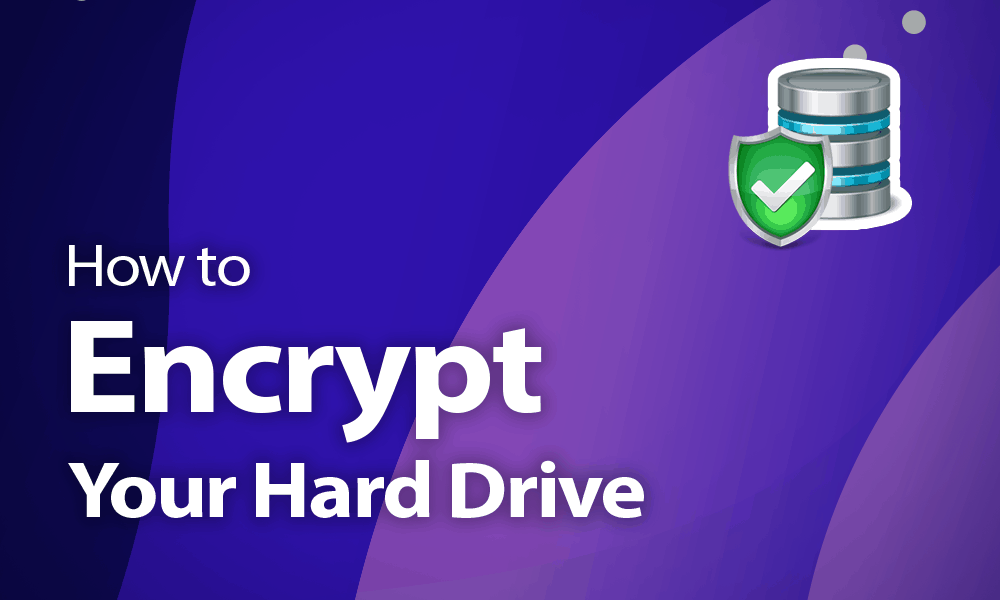Best HDD encryption software offers robust solutions for protecting your data from unauthorized access. As we delve into the world of encryption software for hard drives, we uncover essential features, installation processes, data security measures, and performance impacts that every user should consider.
With a focus on user interface, compatibility, customer support, and more, this comprehensive guide aims to provide you with all the information you need to make an informed decision when choosing the best HDD encryption software for your needs.
Overview of HDD Encryption Software

HDD encryption software is a type of security tool designed to encrypt the data stored on a hard drive, making it unreadable to unauthorized users without the correct decryption key.
Using encryption software for hard drives is crucial in protecting sensitive information and preventing data breaches. In the event that a hard drive is lost or stolen, encrypted data remains secure and inaccessible to anyone without the proper authorization.
Popular HDD Encryption Software
- VeraCrypt: An open-source encryption software that offers strong encryption algorithms and features such as hidden volumes.
- BitLocker: A built-in encryption tool in Windows operating systems that provides full disk encryption for enhanced security.
- FileVault: A disk encryption program for macOS that encrypts the entire hard drive and protects data at rest.
- AxCrypt: A user-friendly encryption software that allows for seamless file encryption and decryption on Windows.
Features to Look for in HDD Encryption Software
When choosing HDD encryption software, there are several key features to consider that ensure the security and effectiveness of the encryption process. These features play a crucial role in safeguarding sensitive data stored on your hard drive.
Importance of AES Encryption
AES (Advanced Encryption Standard) is one of the most widely used encryption algorithms in HDD encryption software due to its high level of security and reliability. It provides strong encryption that is essential for protecting data from unauthorized access or breaches.
Comparison of Encryption Algorithms, Best hdd encryption software
There are various encryption algorithms used in HDD encryption software, each with its own strengths and weaknesses. Some common encryption algorithms include:
- DES (Data Encryption Standard): A symmetric key algorithm that is less secure compared to AES.
- Twofish: Another symmetric key algorithm known for its flexibility and strong security.
- Serpent: A highly secure symmetric key algorithm that offers robust protection for sensitive data.
It is important to choose HDD encryption software that utilizes strong encryption algorithms like AES to ensure maximum protection for your data.
Installation and Setup Process: Best Hdd Encryption Software

When it comes to installing HDD encryption software, the process can vary depending on the specific software you choose. However, there are some general steps and tips that can help ensure a smooth setup process.
Step-by-Step Guide for Installation
- Download the HDD encryption software from the official website or a trusted source.
- Double-click on the downloaded file to start the installation process.
- Follow the on-screen instructions to complete the installation. This may involve agreeing to the terms and conditions, choosing installation preferences, and selecting the installation location.
- Once the installation is complete, launch the software to begin the setup process.
Tips for a Smooth Setup Process
- Make sure to read the installation instructions provided by the software developer carefully.
- Ensure that your system meets the minimum requirements for the software to function properly.
- Backup your important data before installing the software to avoid any potential data loss during the process.
- Disable any antivirus or firewall programs temporarily to prevent any conflicts during the installation.
Compatibility Issues
In some cases, users may encounter compatibility issues during the installation of HDD encryption software. These issues can arise due to conflicts with existing software, outdated system requirements, or hardware limitations. It is essential to check the compatibility of the software with your system before proceeding with the installation to avoid any potential issues.
Data Security and Protection
Data security is a critical aspect of HDD encryption software, ensuring that sensitive information is safeguarded from unauthorized access. By encrypting the data stored on the hard drive, this software adds an extra layer of protection, making it nearly impossible for hackers or unauthorized users to decipher the information.
Role of Password Protection and Encryption Keys
- Password Protection: One of the primary methods used to secure data is through password protection. Users are required to enter a password to access the encrypted data, acting as a barrier against unauthorized entry.
- Encryption Keys: Encryption keys play a crucial role in securing data by encoding and decoding the information. These keys are used to encrypt the data before storage and decrypt it when accessed by authorized users.
Best Practices for Ensuring Data Security
- Choose a Strong Password: To enhance data security, it is essential to use a complex and unique password that is difficult to guess.
- Regularly Update Encryption Keys: Updating encryption keys on a regular basis ensures that the data remains secure and protected from potential threats.
- Enable Two-Factor Authentication: Implementing two-factor authentication adds an extra layer of security by requiring users to provide additional verification besides a password.
- Secure Backup of Encryption Keys: It is crucial to securely back up encryption keys to prevent data loss in case of system failure or other unforeseen events.
Performance Impact and Speed
When it comes to HDD encryption software, one crucial aspect to consider is the impact it has on the performance of a system. Encryption processes can sometimes slow down data access and overall system performance. However, there are ways to minimize this impact and ensure that your system runs smoothly even with encryption in place.
Effect on System Performance
Encrypting data on your hard drive can lead to a slight decrease in performance, as the encryption and decryption processes require additional computational resources. This can result in longer load times for files and applications, especially on older or slower systems.
- Implementing hardware-based encryption solutions can minimize the performance impact, as they offload the encryption processes to dedicated hardware components.
- Using efficient encryption algorithms and software optimized for speed can also help reduce slowdowns during data access.
- Regularly updating your encryption software and system hardware can improve performance by incorporating the latest optimizations and enhancements.
Data Access Speed Comparison
Before implementing HDD encryption software, data access on your system may have been faster due to the lack of encryption overhead. However, the trade-off for this speed is the compromised security of your sensitive information. After encrypting your hard drive, there may be a noticeable difference in data access speed, but the enhanced security and protection of your data are well worth it.
It’s important to strike a balance between data security and system performance when deciding to encrypt your hard drive.
User Interface and Ease of Use

The user interface plays a crucial role in the overall user experience when it comes to HDD encryption software. A user-friendly interface can make the encryption process seamless and efficient, especially for beginners who may not be familiar with the technical aspects of encryption software.
User-Friendly Interface
When evaluating popular HDD encryption software, look for interfaces that are intuitive and easy to navigate. A clean and organized layout can help users find the necessary features quickly and understand the encryption process better. Features like drag-and-drop functionality, clear instructions, and visual cues can enhance the user experience significantly.
- Ensure the software has a straightforward setup process with step-by-step guidance to assist users in encrypting their hard drives.
- Look for customizable settings that allow users to adjust encryption preferences based on their needs and security requirements.
- Check for tooltips or help sections within the software that provide additional information on different features and functionalities.
- Consider software that offers a user-friendly dashboard or control panel where users can easily manage and monitor their encrypted drives.
A user-friendly interface can make a complex task like HDD encryption more accessible to a wider range of users, regardless of their technical expertise.
Compatibility and Integration
When it comes to HDD encryption software, compatibility and integration play a crucial role in ensuring seamless protection of your data. Let’s delve into how these aspects impact the overall effectiveness of HDD encryption solutions.
Compatibility with Different Operating Systems
HDD encryption software should ideally be compatible with a wide range of operating systems to cater to diverse user needs. Whether you are using Windows, MacOS, Linux, or any other OS, the software should seamlessly integrate with your system without any compatibility issues.
Integration with Other Security Software
Integration with other security software or tools can further enhance the protection offered by HDD encryption solutions. For example, compatibility with antivirus programs can provide an additional layer of security by detecting and eliminating any potential threats to your encrypted data.
Some examples of software that integrate well with HDD encryption solutions include:
- Bitdefender Total Security
- Kaspersky Internet Security
- McAfee Total Protection
Customer Support and Documentation
Customer support and documentation are crucial aspects when choosing HDD encryption software. Let’s delve into the available options and the importance of comprehensive documentation.
Customer Support Options
- Most HDD encryption software providers offer customer support through email, phone, or live chat.
- Some providers also have online knowledge bases, FAQs, and user forums for self-help.
- Premium support plans may include priority access to support agents for quicker assistance.
Importance of Documentation
Comprehensive documentation is essential for users to troubleshoot issues and navigate the software effectively. It serves as a guide for setup, configuration, and troubleshooting, ensuring a smooth user experience.
Experiences with Customer Support
Company A has been praised for their responsive customer support team, providing timely solutions to user queries.
On the other hand, Company B has faced criticism for long wait times and ineffective resolutions from their support team.
Closing Notes
In conclusion, the world of HDD encryption software is vast and varied, with numerous options available to cater to different preferences and requirements. By understanding the key aspects highlighted in this guide, you can navigate the realm of data security with confidence and ensure that your sensitive information remains protected at all times.
FAQ Summary
What sets HDD encryption software apart from regular software?
HDD encryption software specializes in securing the data stored on hard drives by encrypting it, making it inaccessible to unauthorized users.
How does AES encryption enhance the security of HDD encryption software?
AES encryption is a robust encryption standard that ensures high levels of security by using advanced encryption algorithms.
Are there any compatibility issues to consider when installing HDD encryption software?
Compatibility issues may arise based on the operating system and other security software present on the system. It’s advisable to check for compatibility before installation.
How can users minimize the performance impact caused by encryption processes?
Users can optimize performance by selecting encryption software that offers efficient encryption algorithms and by ensuring that the system meets the software’s requirements.
What role do encryption keys play in securing data with HDD encryption software?
Encryption keys are essential for encrypting and decrypting data. They act as the access point to unlock encrypted information, ensuring that only authorized users can access it.
